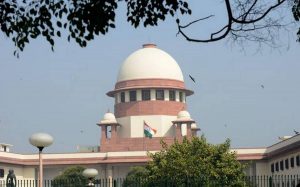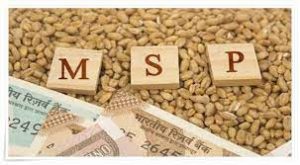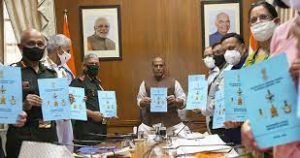Today Current Affairs: 10th September 2021 for UPSC IAS exams, State PSC exams, SSC CGL, State SSC, RRB, Railways, Banking Exam & IBPS, etc
Table of Contents
Electric Vehicle (EV) Policy: Assam:

The Assam government has unveiled an electric vehicle (EV) policy for phasing out vehicles running on fossil fuels by 2030.
Highlights of the Policy:
- The policy aims to introduce at least 200,000 electric vehicles (EVs) within the next five years through a set of incentives for buyers.
- It entails converting all government vehicles and fleet of public buses to electric and deploying 2 lakh EVs within the next five years.
- In order to encourage people to buy EVs, the state government will give a subsidy of ₹20,000 on two-wheelers, ₹50,000 for three-wheelers and ₹1.5 lakh for four-wheelers.
- There will be 100% exemption of registration fees, road tax and parking fees for EVs.
- It also envisages charging stations for EVs across the state. Entrepreneurs setting up the stations will get a 90% discount on their electricity bills for the first five years.
- The government aims to see 6 million electric and hybrid vehicles on the roads by 2020 under the National Electric Mobility Mission Plan 2020.
- Faster Adoption and Manufacturing of Electric Vehicles in India (FAME India Scheme) for improving electric mobility in India.
The Jharkhand State Employment Of Local Candidates Bill, 2021:

The Jharkhand State Employment of Local Candidates Bill, 2021’ was recently passed by the state Assembly.
- It provides 75% reservation for locals in private sector jobs with a monthly salary of up to ₹40,000.
- Once notified, Jharkhand will become the third State, after Andhra Pradesh and Haryana, to pass such a law.
- The bill will treat shops, establishments, mines, enterprises, industries, companies, societies, trusts, Limited Liability Partnership firms and any person employing ten or more persons as the private sector and an entity. Moreover, the same may be notified by the government from time to time.
Highlights of the Bill:
- Every employer needs to register employees on a designated portal who are receiving gross monthly salary or wages not more than Rs 40, 000 — or as notified by the government from time to time — within three months of this bill (after turning into an Act) coming into force.
- No person should be engaged or employed unless the registration process is complete on the designated portal.
- No local candidate will be eligible to avail 75 per cent benefit without registering herself in the designated portal.
- The employer may claim exemption where an adequate number of local candidates of the desired skill qualification or proficiency are not available.
- The employer will have to furnish a quarterly return about vacancies and employment on the portal which will be examined by an Authorised Officer (AO), who is a District Employment Officer, who can call any records for the purpose of verification.
- The aggrieved employer may also file an appeal within 60 days of an order passed by the AO or DO in front of an Appellate Authority — the Director, Employment and Training, Government of Jharkhand.
Supreme Court Collegium:

The Supreme Court Collegium has approved 10 additional judges of the Karnataka High Court and two from the Kerala High Court for appointment as permanent judges of these courts.
- The Collegium is pushing hard to fill vacancies. There is likely to be a steady flow of recommendation of names for filling vacancies in the 25 High Courts, which have over 465 vacancies. This is over 41% of the total sanctioned judicial strength of 1,098 in the High Courts.
- In exercise of the powers conferred by clause (2) of Article 124 of the Constitution of India, the appointments are made by the President of India.
- The names are recommended by the Collegium.
Eligibility to become a Supreme Court judge:
- The norms relating to the eligibility has been envisaged in the Article 124 of the Indian Constitution.
- To become a judge of the Supreme court, an individual should be an Indian citizen.
- In terms of age, a person should not exceed 65 years of age.
- The person should serve as a judge of one high court or more (continuously), for at least five years or the person should be an advocate in the High court for at least 10 years or a distinguished jurist.
The collegium sends its final recommendation to the President of India for approval. The President can either accept it or reject it.
- In the case it is rejected, the recommendation comes back to the collegium. If the collegium reiterates its recommendation to the President, then he/she is bound by that recommendation.
Minimum Support Price (MSP):

The Cabinet Committee on Economic Affairs (CCEA) has approved the increase in the MSP for all mandated Rabi crops for the Rabi Marketing Season 2022-23.
- This will ensure maximum remunerative price for farmers and also encourage them to sow a wide variety of crops.
- MSP is the rate at which the government buys grains from farmers. Currently, it fixes MSPs for 23 crops grown in both Kharif and Rabi seasons.
- The MSP is the rate at which the government purchases crops from farmers, and is based on a calculation of at least one-and-a-half times the cost of production incurred by the farmers.
- The Union Budget for 2018-19 had announced that MSP would be kept at levels of 1.5 the cost of production.
- The MSP is fixed twice a year on the recommendations of the Commission for Agricultural Costs and Prices (CACP), which is a statutory body and submits separate reports recommending prices for kharif and rabi seasons.
AUSINDEX 2021:

India and Australia have participated in the 4th edition of AUSINDEX Naval Exercise.
- It comes on the heels of the Malabar Naval Exercise, one of the largest wargaming exercises of India, in which all the four members of the Quad had participated – India, Australia, the US and Japan – in the last week of August.
- These exercises are a part of the two-month deployment of the Navy’s Eastern Fleet to Southeast Asia, South China Sea and the Western Pacific.
- It is a major biennial bilateral exercise, first held in India in 2015.
- The 2021 exercise is being held in Australia.
- It aims to consolidate shared commitment to regional and global security challenges promoting peace, security and stability in the Indo-Pacific region.
- It is aligned to the 2020 Comprehensive Strategic Partnership between the two nations.
- Other Exercises: Ex AUSTRA HIND (Bilateral Exercise with Army), EX PITCH BLACK (Australia’s multilateral air combat training exercise)
Delegation Of Financial Powers To Defence Services (DFPDS), 2021 Rules.:

The Ministry of Defence has released the Delegation of Financial Powers to Defence Services (DFPDS), 2021 rules.
- The primary focus of the enhanced delegation of financial powers is to overcome procedural delays, bring about greater decentralisation and operational efficiency.
- The DFPDS 2021 rules is another big step in defence reforms to strengthen security infrastructure.
Key Highlights of DFPDS 2021:
Financial Powers Devolved to Field Formations:
- Enhanced the delegation of revenue procurement powers for the Army, Navy and Air Force.
- 10% increase in Delegated Financial Powers of Vice Chiefs of Services.
- Financial powers have also been delegated to new officers among the services, depending on requirements.
Focus on Operational Preparedness:
- Under the new rules, critical equipment can be hired for short periods as compared to purchases or a long-term lease, which are not only considerably expensive but also take a long time.
- Enhanced delegation of financial powers is to empower Field Commanders and below to procure equipment/war-like stores in a speedy manner for urgent operational necessities and meeting essential sustenance requirements.
Promoting Ease of Doing Business:
- Up to three times increase in funding related to Indigenisation/R&D to achieve ‘Atmanirbhar Bharat’.
C-295 Aircraft Deal:

The Cabinet Committee on Security (CCS) has cleared procurement of 56 C-295 MW medium transport aircraft for the Indian Air Force under the Make-in-India initiative in the aerospace sector.
- The C-295MW aircraft will be purchased from Airbus Defence and Space S.A., Spain.
- Capacity: The C-295 MW is a transport aircraft of 5-10 tonne capacity with contemporary technology.
- Features:
- It has a rear ramp door for quick reaction and para-dropping of troops and cargo.
- It will be installed with the indigenous Electronic Warfare Suite.
- Replacement:
- It will replace the Indian Air Force’s ageing fleet of Avro-748 planes.
- The Avro-748 planes are a British-origin twin-engine turboprop, military transport and freighter with a 6-tonne freight capacity.
- Project Execution:
- Airbus Defence and Space and Tata Advanced Systems Limited (TASL) will jointly execute the project to equip the air force with the new transport aircraft under the Make-in-India initiative in the aerospace sector.
- Airbus will supply the first 16 aircraft in fly away condition while the remaining 40 will be assembled in India by TASL.
Vidyanjali 2.0 Portal:

Addressing the inaugural conclave of ‘Shikshak Parv’, Prime Minister Narendra Modi launched the Vidyanjali 2.0 portal.
- Vidyanjali is an initiative taken by the Ministry of Education, Government of India with the aim to strengthen Schools through community and private sector involvement in schools across the country.
- This initiative would connect schools with varied volunteers from the Indian Diaspora namely, young professionals, school alumni, in service and retired teachers / Government officials / professionals and many others.
- Vidyanjali has two verticals : “Participate in school Service/Activity” and “ Assets/Material/Equipment” in which volunteer can support and strengthen the government and government aided schools.
- Vidyanjali 2.0 is an amalgamation of the words Vidya meaning “correct knowledge” or “clarity” and Anjali meaning “an offering with both hands” in Sanskrit language.
Production Linked Incentive (PLI) Scheme For Textiles:

Government of India has approved Production Linked Incentive (PLI) Scheme for Textiles for MMF Apparel, MMF Fabrics and 10 segments/ products of Technical Textiles with a budgetary outlay of Rs. 10,683 crore.
- PLI for Textiles along with RoSCTL, RoDTEP and other measures of Government in sector e.g. providing raw material at competitive prices, skill development etc will herald a new age in textiles manufacturing.
- PLI scheme for Textiles is part of the overall announcement of PLI Schemes for 13 sectors made earlier during the Union Budget 2021-22, with an outlay of Rs. 1.97 lakh crore.
- With the announcement of PLI Schemes for 13 sectors, minimum production in India is expected to be around Rs. 37.5 lakh crore over 5 years and minimum expected employment over 5 years is nearly 1 crore.
- There are two types of investment possible with different set of incentive structure.
- Any person, (which includes firm / company) willing to invest minimum ₹300 Crore in Plant, Machinery, Equipment and Civil Works (excluding land and administrative building cost) to produce products of Notified lines (MMF Fabrics, Garment) and products of Technical Textiles, shall be eligible to apply for participation in first part of the scheme.
- In the second part any person, (which includes firm / company) willing to invest minimum ₹100 Crore shall be eligible to apply for participation in this part of the scheme.
- In addition, priority will be given for investment in Aspirational Districts, Tier 3, Tier 4 towns, and rural areas and due to this priority Industry will be incentivized to move to backward area.
Emergency Landing Field (ELF):

Defence Minister Rajnath Singh and Minister for Road Transport and Highways Shri Nitin Gadkari will Inaugurate Emergency Landing Field (ELF) and also witness aircraft operations on Emergency Landing Field (ELF) on NH-925 0n 09/09/2021 at Gandhav Bhakasar Section (NH-925) South of Barmer (Rajasthan).
- This is the first time that National Highway will be used for emergency landing of aircrafts of
- NHAI had developed a 3.0 Km section of Satta-Gandhav stretch of NH-925A from Km. 41/430 to Km. 44/430 as an Emergency Landing Facility (ELF) for Indian Air Force, which is part of newly developed Two lane paved shoulder of Gagariya-Bakhasar & Satta-Gandhav Section having total length of 196.97 Km. and Costing of Rs. 765.52 Crores under Bharatmala Pariyojana.
- This project will improve connectivity between villages of Barmer & Jalore districts located on international border. The stretch being located in the western border area will facilitate the vigilance of the Indian Army as well as strengthen the basic infrastructure of the country.
- Apart from this Emergency Landing Strip, 3 helipads (size 100 x 30 metres each) have been constructed in Kundanpura, Singhania & Bakhasar villages in this project according to the requirements of the Air Force/Indian Army, which will be the basis for strengthening the Indian Army and security network on the western international border of the country.




